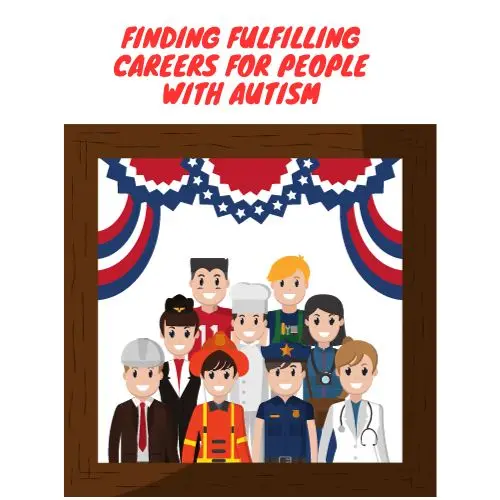Finding Fulfilling Careers for People with Autism
Autism presents unique challenges in the workplace but also strengths to leverage. People on the spectrum can thrive in careers suited to their talents and needs. This article explores promising jobs for autistic people and helpful professional success strategies.
Key Considerations for Careers for People with Autism

| Consideration | Rationale |
|---|---|
| Play to strengths | Focus on detail, systematic thinking, persistence, memory |
| Accommodate needs | Reduce sensory stimuli, allow flex schedules |
| Prioritize structure | Limit uncertainty, provide clear guidelines |
| Offer mentoring | Help navigate workplace social cues |
| Leverage special interests | Pursue expertise in subjects of passion |
Overview of Autism Traits Relevant to Work

Autism, clinically known as Autism Spectrum Disorder (ASD), involves challenges with communication, social interactions, sensory processing, flexibility, and motor control. But ASD also lends strengths like loyalty, focus, and consistency. Key work-related considerations include:
Social aspects – Difficulty reading social cues can complicate professional interactions and relationships. Finding accepting work cultures and providing social skills coaching can help.
Sensory sensitivities – Fluorescent lights, loud noise, cluttered spaces, and other stimuli can be distracting and overwhelming. Allowing headphones or remote work aids focus.
Need for structure – Ambiguity, unpredictability, and frequent change provoke anxiety. Clear guidelines, steady routines, and reminders assist in adapting to workflows.
Narrow interests vs skills – Many excel when applying intense interests, like numbers or data. But some struggle despite intellectual strengths if tasks lack appeal.
Motor challenges – Physical coordination limitations may impede some roles. Others seamlessly blend technical and physical execution.
Strengths – Tenacity, loyalty, honesty, consistency, and pattern recognition aptitude offer workplace assets. Many have exceptional memory, focus, and technical abilities.
12 Promising Jobs for People with Autism
Here are 12 careers that can leverage the talents of people on the spectrum while accommodating needs:
1. Computer Programming
Methodical thinking, persistence, and comfort with repetition suit programming work. Most interaction is with computers rather than people. Remote work is common.
2. Data Science
Collecting, analyzing, and interpreting data leverages numerical strengths. Technical skills are highly valued over social skills. Can work independently and focus intently on tasks.
3. Accounting
Accountants work largely alone, analyzing financial data and preparing reports. Strong attention to detail and comfort with numbers is ideal. Professional certification is required.
4. Graphic Design
Visual thinkers can excel at manipulating images, colors, and layouts. Freelance opportunities allow flexible hours. Shares strengths in systematic thinking and visual memory.
5. Drafting and CAD
Develop technical drawings used in architecture, manufacturing, and engineering. Detail-oriented work with a systematic approach performed independently.
6. Cybersecurity Analyst
Monitor systems for security threats. Detail-focused work involving logic, data analysis, and problem-solving skills. Limited social interactions.
7. Archive or Museum Curator
Managing collections in archives and museums suits interest in cataloging/taxonomizing information. Supportive setting for unique or narrow interests.
8. Nature and Agricultural Work
Landscaping, farming, forestry, and animal care allow outdoor and often independent work. Repetitive physical tasks and close attention to living things.
9. Equipment or Machine Repair
Fixing and maintaining mechanical things engages technical aptitude. Performed independently with set procedures. Useful in manufacturing and facilities contexts.
10. Software or Web Developer
Similar traits to computer programming, but higher level design work. Logic, systematic thinking, and persistence aid success. Project focus varies.
11. Truck, Delivery, or Route Driver
Driving and delivery roles provide structured routines with minimal social interactions. Matches preference for repetition and navigational memory skills.
12. Quality Assurance and Testing
Meticulously verifying processes, products, or materials against rigorous specifications. Thoroughness and persistence in documenting flaws. Independent work.
Tips for Job Success for People with Autism

Beyond finding the right job match, success also requires finding supportive employers and effectively communicating needs. Helpful tips include:
- Disclose ASD challenges to HR and managers to arrange accommodations
- Request written job instructions to supplement verbal explanations
- Ask about flex schedules or remote work to aid focus
- Seek a mentor for informal guidance with social situations
- Practice strategies like scripting to ease small talk requirements
- Develop a visual map of workspace and job tasks
- Prepare ways to minimize sensory disruptions like noise-cancelling headphones
- Leverage special interests by volunteering for related projects
- Keep tools and systems for organizing work and managing time
- Plan routines and breaks to re-energize between demanding tasks
Finding Companies that Welcome Neurodiversity

Traditional corporate cultures are growing more neurodiversity-friendly, but some companies actively recruit and support autistic workers. These include:
- Microsoft, SAP, JP Morgan, Ford, IBM, Willis Towers Watson, EY
- ULTRA Testing, Aspiritech, AutonomyWorks, Autismdbs, Included. life
- Specialisterne, Divergent, Coding Autism, The Asperger-Autism Network (AANE)
Local vocational rehabilitation agencies also aid job placement. Candidates can also certify skills through organizations like:
- Austin Community College Bridge Program
- The University of Iowa REACH Program
- Florida Atlantic University Academy for Community Inclusion
- Eastern Carolina University SUCCEED Program
Finding Fulfillment in Work
The most rewarding careers leverage individual strengths while minimizing challenges. No role will be a perfect fit. However, thoughtfully playing to strengths shared by many on the spectrum can set the stage for remarkable contributions at work and in the world.
With careful self-assessment, targeted job searches, vocational training, and inclusive workplaces, people with autism have more opportunities than ever to pursue meaningful careers doing what they do best.
The Takeaway
The autism spectrum presents particular obstacles but also unique capabilities. By considering needs for structure, social support, sensory moderation, and technical aptitudes, people with autism can identify rewarding and well-suited careers. With reasonable accommodations, mentoring, and strengths-focused job matches, people on the spectrum can excel in many occupational roles.
Read Also: Autonomy vs Shame and Doubt: A Developmental Milestone

